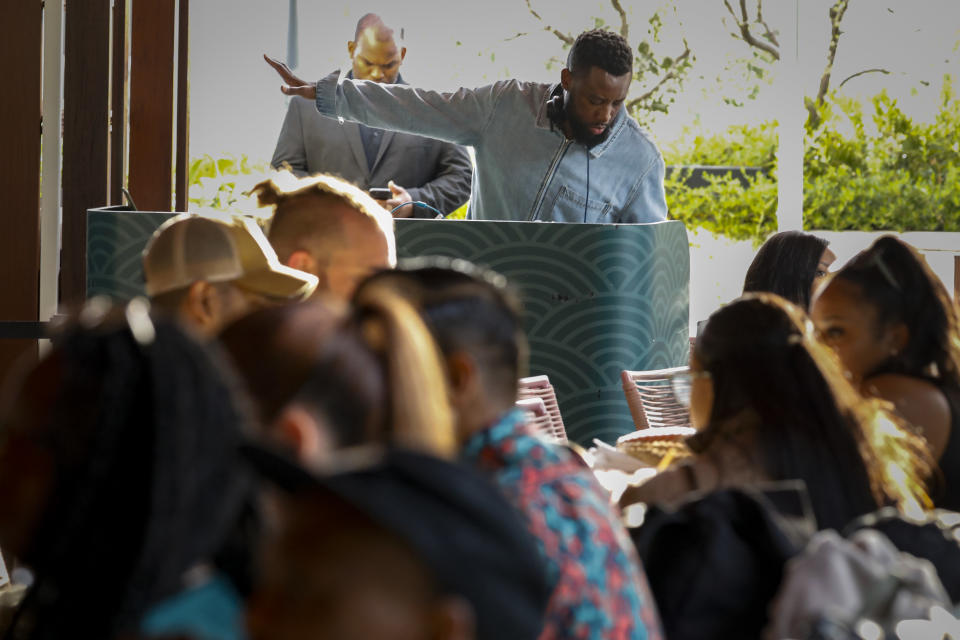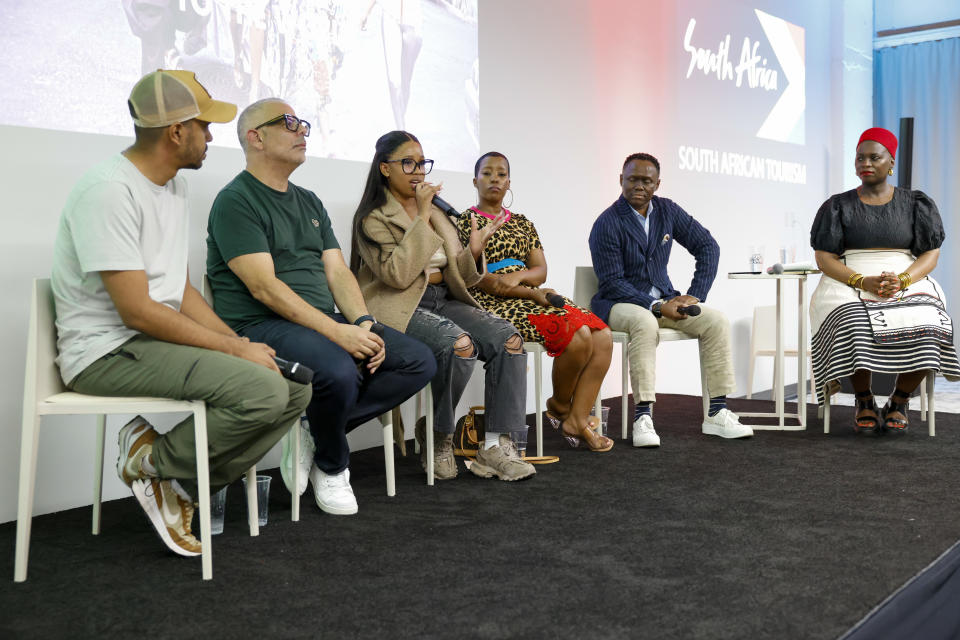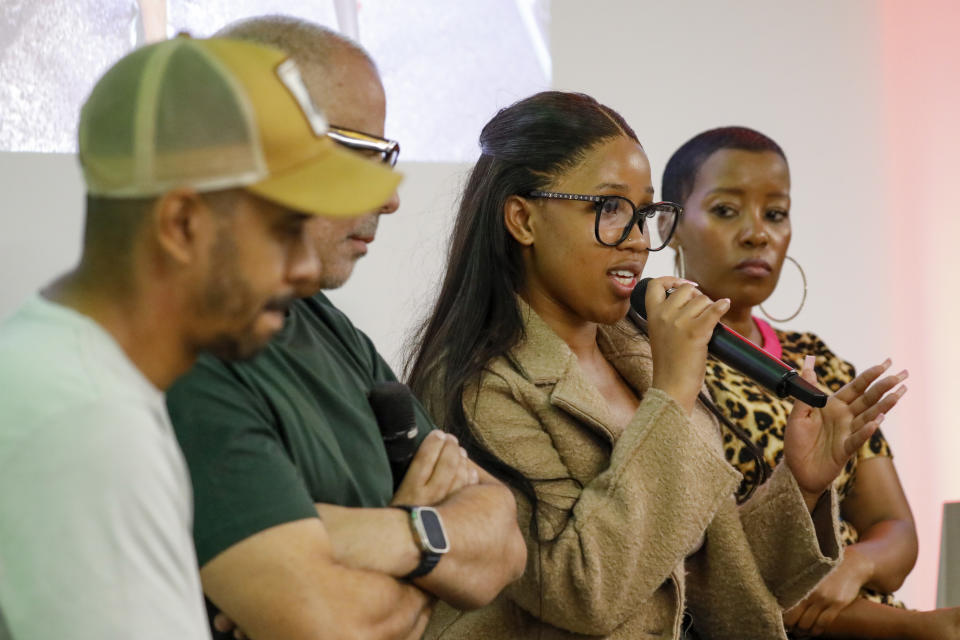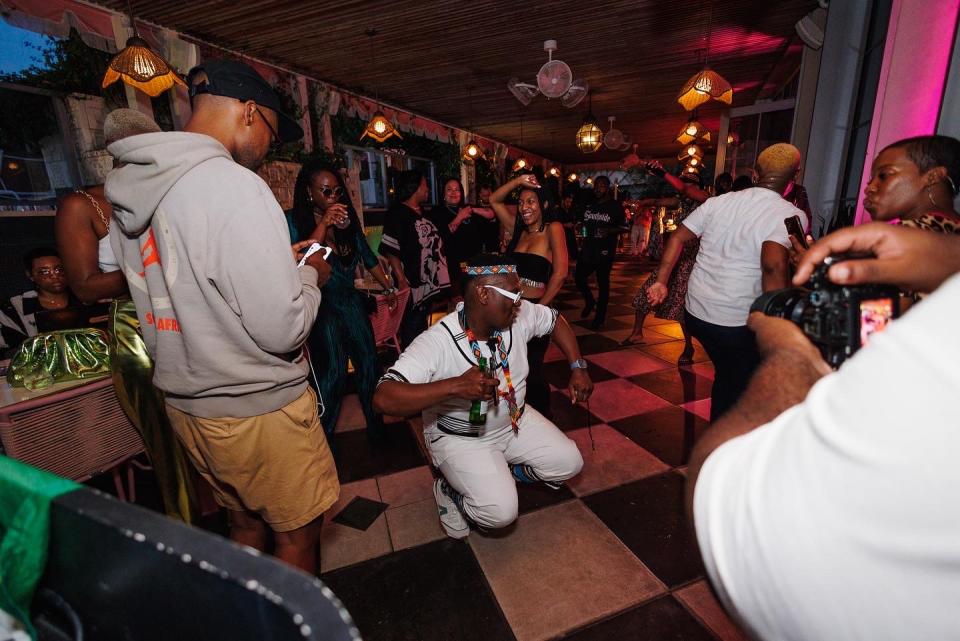Amapiano To The World: The Next Cultural Shift In Mainstream Music

My flight is a melting pot of complexions headed to Florida — most in anticipation for this year’s Afro Nation Miami. Three days ahead of the main event, South African Tourism held a panel discussion to enlighten several musicians, producers and industry experts about the country’s popular and burgeoning Amapiano sound.
“As Amapiano makes its way around the world it’s another way in which South Africa’s history and culture demonstrates its global influence,” said Jerry Mpufane, President of South African Tourism North America. “Amapiano is born out of the soul of South Africa and they say one of the best ways to experience it to its fullest is to be where the music is.” The Amapiano sound features a heavy log drum baseline that permeates any room or space that it’s played in. Derived from the South African sounds of Kwaito, the roots of Amapiano stems from the struggles and strides of apartheid in the 1940’s. The fresh sound exuberates a feeling of optimism and liberation of South Africa’s youth, woven into their fashion, dance, and dialect.

At Pharrell’s The Goodtime Hotel’s White Box venue on an inconsistently rainy Thursday (May 25), Amapiano pillars joined on stage to introduce newbies to the sound. They also sought to further inform Amapiano lovers on the genre, which Mpufane described as “a hybrid of deep house and jazz with percussive loops reminiscent of lounge music coupled with soulful vocals.” South African Tourism presented the industry-focused panel discussion followed by a food-filled reception musically curated by DJ AYA.
The panelists included artist Pabi Cooper, industry executives Yoel Kenan, CEO of Africori, Devon Peterson, Creative Director of Africori, Manaileng Maphike, Attorney at Maphike Attorneys Inc. and Mpufane. The intimate event provided an opportunity for Amapiano artists to speak about the genre that they are building from the ground up, and for people to learn more.

Amapiano, born roughly one hour north of Johannesburg in the administrative capital city of Pretoria, is pioneered by hometown artists including Cooper, Focalistic, Chicco, Mellow and Sleazy—who collectively make up Pitori Super League with DJ/producer Vigro Deep. Other artists who have given the genre viral success are Uncle Waffles, Kamo Mphela, and TXC. Currently, Amapiano is arguably South Africa’s most infectious new commodity, attracting new audiences as the genre continues to spread globally like wildfire.
Cooper, a leading artist of the genre, shared her take on the sound, deeming it unique, diverse and “spiritual.” She said, “It’s very relatable. Maybe someone relates to the story that the artist is telling; they relate so much you either cry, or you’re like, ‘Yeah, I’m going to make it, yeah!’ So it gives a different feeling to each and every person listening to Amapiano.” Even though foreign ears may not understand the language of the songs — which is mostly sung in Zulu — Amapiano hits you in a way where you feel like you understand. “It’s such a spiritual genre,” Cooper added.

The enriching discussion was moderated by Yolanda Sangweni, Vice President of Programming and New Content Development at NPR and Justin Barnette, Head of Marketing and Communications of South African Tourism North America. Panelists further delved into conversation about the cultural significance of Amapiano, its widespread popularity, and the spotlight it has cast on South Africa, its people, art and opportunities for tourism and capital.
“It is through the arts that you truly get the true, true, true reflection of the nation’s soul,” said Mpufane. “During good times, it is through the arts that we appreciate who the people are, even during the worst of times. It is through the arts that you appreciate who people are, because all of these people are mentioned and advocate during the worst of times and they advocate during the best of times. We recognize this genre for what it is. It is a great export of South Africa on the back of the story tellers, and we invite people to come and experience it in South Africa.”
Devon Peterson elaborated on what he feels makes the genre special saying that, “it’s the crowd that makes the music amplify.” He added, “If you’re in a room full of like, four thousand people, and you’re all singing along to the song, it just takes it to another level. And everyone is doing the same dance move, and everybody’s singing, and singing along to the lyrics … it adds something.”

The viral rise of Amapiano music thrived during the global COVID-19 pandemic when many were stuck in the house scrolling through apps like TikTok and Instagram. It can now be found playing in clubs and venues across South Africa and culturally-inclined spaces around the world. Per the panelists, if you want to get the true authentic feel of Amapiano, one should visit the Johannesburg township of Soweto, where Nelson Mandela once lived. There are plenty of venues there to hear the sound, including Konka, Zone 6 or Disoufeng. Pretoria also offers the musical genre at its Ayepyep lounge and nightclub, ZanZou, among other festivals held in the country including Straata Nation Address and Mamelodi’s outdoor music festival.
The future of Amapiano is one full of possibilities as the young artists and creators continue to put their footprints all over the genre and nurture it into something bigger. As mainstays like Drake and Beyoncé continue to fuse diasporic sounds into their music, Amapiano is destined to cross over into the mainstream. But the question remains, “which major Hip-Hop, R&B, or Pop artists will be first to do so, without diluting the richness and history of the sound?”
In response, the panelists collectively believe that the Amapiano sound cannot become weakened as it grows across the world — but only made more distinct between authentic and commercial.

More from VIBE.com
South African Rapper Costa Titch Dies After Collapsing On Stage
Gabrielle Union Surprised By Dwyane Wade's Tattoo Of Her Initials
Best of VIBE.com

